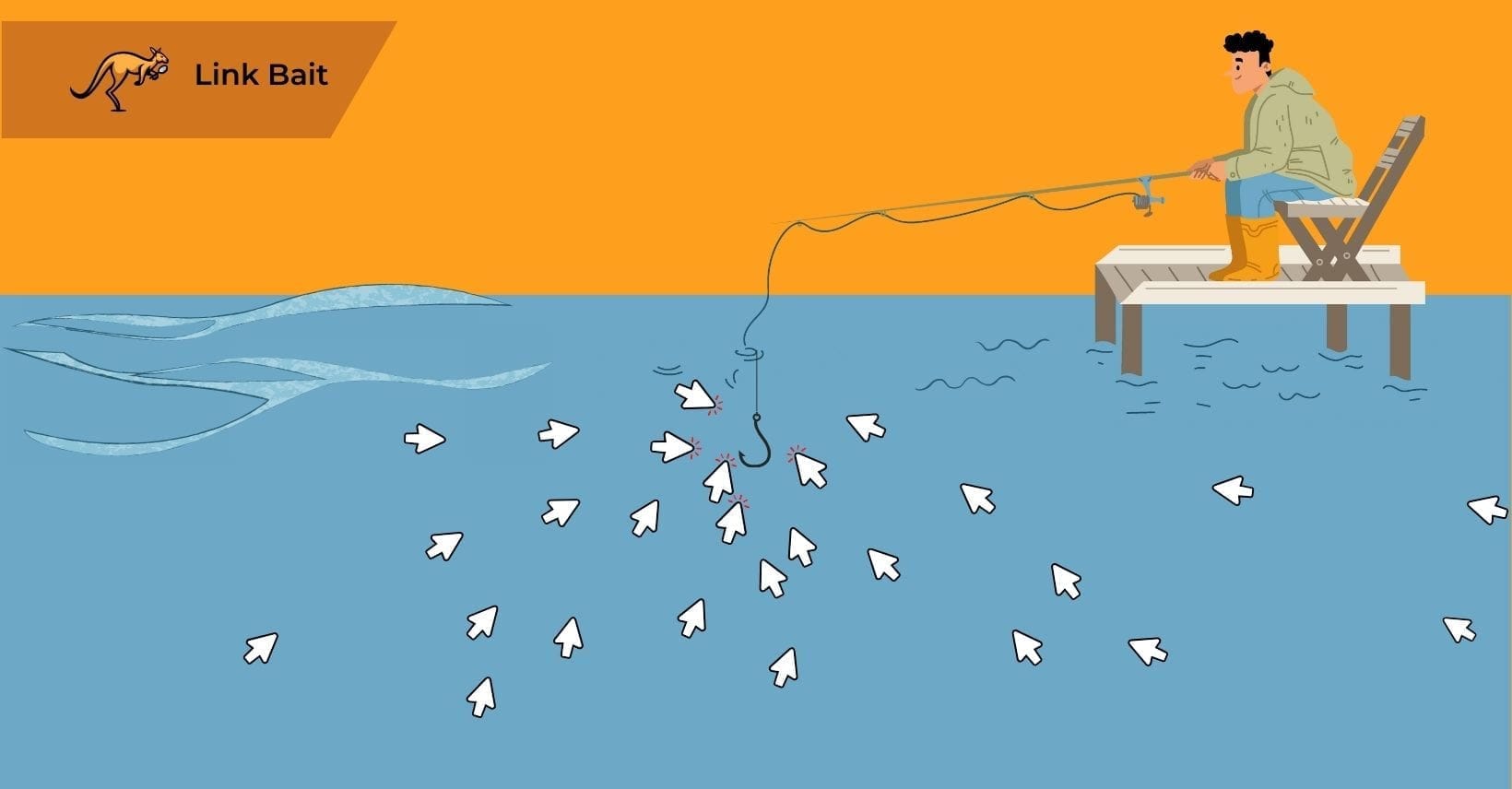What is Link Relevancy?
Link Relevancy defines the value and thematic coherence of external sites linking to yours, required for Google to assess the relevance of your site’s traffic.
By analyzing your backlinks, Google discerns your niche and core themes, considering both the internal links within your site and the external sites to which you connect.
This process pinpoints your niche and identifies the products or services you offer. For example, suppose you run a home appliances business focusing on coolers and freezers. Engaging with industry-related sites, such as blogs or review platforms, is beneficial in that case.
When these relevant sites link back to you, they affirm your authority in that niche, given the close relation of their content to yours. Post the Penguin update, Google emphasizes the importance of Link Relevancy.
As a website owner or SEO expert familiar with link building, staying updated on this trend is advisable. In the domain of raw link-building value, relevance is indeed pivotal.
If you’re looking for raw link-building value, relevance is king
When content and links are relevant to users, they are more likely to follow them and get your site moving through the ranks. Google knows this. It is the same reason it has tailor-made its algorithm to prioritize relevant backlink profiles over high-ranking ones.
Other reasons why Google carefully looks at the relevance of your links are that it helps to:
- Understand what your site’s business industry, products, or services are.
- Break down Link Relevancy from domain to domain, domain to a page, page to page, and link to a page.
- And prevent black hat link building from irrelevant websites.
And to expand on our second reason, let’s illustrate the different types of Link relevancy. So, continuing with our example of a home appliances brand, let’s say a lifestyle website dedicated to family and home links back to you. The domain niche might not seem very relevant. Still, they might have a section dedicated to appliances. This is how those relevance categories would work:
- Domain to Domain: Your home appliances site is of light relevance to a family and home site.
- Domain to Page: The lifestyle site’s review on best freezers has high relevancy to your domain.
- Page to Page: The lifestyle site’s review on a specific freezer linking to your product page is of high relevancy.
- Link to Page: If the link referring to your product makes sense within the review context, this will add relevancy to said link. A randomly placed link to manipulate SEO will decrease its relevancy.
Link building has become a sophisticated discipline where the relevancy and quality of links are paramount. Search engines now prioritize link relevance when determining link quality. A high-quality link should be organic, contextually appropriate, and provide genuine value to readers.
Integrating such links can boost your site’s traffic and improve your ranking on the search engine results page (SERP). Next, we’ll explore determining if a link is relevant to your content and guarantee it adds value to your site and audience.
How Can You Assess the Relevancy of a Link?
Assessing the relevancy of a link, particularly when researching online or curating content, involves several steps to ensure that the link is appropriate and useful for your needs. Here are some key aspects to consider:
Content Match
- Topic Relevance: Check if the content of the link directly addresses the topic you’re interested in. The title, meta-description, and a quick scan of the introduction can give you an idea of the content’s focus.
- Depth of Information: Determine whether the content provides enough depth on the topic, including detailed explanations, analysis, or data, depending on your needs.
Source Authority
- Publisher Credibility: Evaluate the credibility of the publisher. Renowned and established sources tend to be more reliable.
- Author Expertise: Look for information about the author. Experts or professionals in a particular field often provide more accurate and trustworthy information.
Timeliness
- Publication Date: Check the date when the content was published. Recent content is crucial for topics that change frequently, such as technology or current events.
- Updates and Revisions: See if the content has been updated or revised to reflect the latest information or developments.
Purpose and Objectivity
- Intended Audience: Consider whether the content is aimed at beginners, experts, or a general audience and whether that matches your needs.
- Bias and Objectivity: Assess the objectivity of the content. Be wary of content that heavily promotes a particular viewpoint without justification or that contains potential biases without clear evidence or acknowledgment.
Usability and Accessibility
- Link Functionality: Ensure the link is active and leads to a functional website. Broken links or those that lead to error pages are not useful.
- Website Usability: Check if the website is easy to navigate and free from excessive ads or pop-ups that could hinder your ability to access the information.
Supporting Evidence
- References and Sources: Reliable content often includes citations, references, or links to supporting data. These can lend credibility to the information presented.
SEO and Technical Aspects
- Keywords: Analyze if the content uses relevant keywords that match your search queries.
- Backlinks: Consider the link’s SEO value if relevant to your purpose, such as the number and quality of backlinks pointing to the webpage.
By thoroughly evaluating these aspects, you can effectively determine the relevancy and reliability of a link for your informational needs or research.
What Are the Common Challenges in Maintaining Link Relevancy?
Maintaining link relevancy on a website is crucial for both user experience and search engine optimization (SEO), but it can be quite challenging. Here are some common issues that you might encounter:
Content Updates and Deletions
Over time, content on websites gets updated or deleted. If other pages link to this content, those links can become outdated or broken. Keeping these links current requires regular review and updates.
URL Changes
URLs may change due to restructuring a website or updating content management systems. Without proper redirection, links that once led to relevant pages might lead to error pages, affecting user experience and site credibility.
Shifts in Content Focus
As websites evolve, their focus or the nature of their content might shift. Links that were once relevant may no longer align with the current content strategy or audience interest.
Scale of Website
Larger websites have more content and thus, more internal and external links. Managing and checking the relevancy and functionality of all these links can become a daunting task as the scale increases.
External Website Changes
Links to external sites are particularly challenging to maintain because you have no control over external content. External pages might be moved, deleted, or their content could change substantially, making the original link irrelevant.
SEO and Algorithm Updates
Search engine algorithms frequently update, and what might be considered a relevant and high-quality link today may not be viewed the same way tomorrow. Keeping up with SEO trends and understanding how search engines evaluate link relevancy is essential.
Link Decay
Over time, some links may point to pages that become less relevant or lower in quality, impacting the perceived quality of your own site.
Redundancy
Multiple links pointing to the same content can happen as sites grow and more content is added. This redundancy can dilute link value and confuse users, as well as search engines.
To address these challenges, it’s important to regularly audit the links on a website, use tools to check for broken links, implement redirects properly, and stay informed about best practices in SEO and content strategy.
How do you integrate Link Relevancy into your strategy project?
It’s simple; you marry smart connections that merge topically relevant links, with relevant content and high-ranking domains.
Asides from relevance and the various levels of trust a link has to pass, they also have a ranking derived from their home domain authority. Ahrefs, the SEO backlink checker, calls it Domain Rating and URL Rating.
When a link successfully contains all of these elements, its quality and trustworthiness can allow a particular website from its same niche to climb up the ranks.
At Searcharoo we base our entire link-building strategy around these types of links, and we call them: targeted links.
We won’t go into an in-depth explanation of how to build these targeted links here. Instead, we’ll give you a quick and effective summary of the best system for interlinking your sites.
First:
You have to identify and optimize your site for the effective and consistent keywords that your niche users are searching for. These keywords need to be cohesive and useful when paired with your website’s content.
Second:
You contact site owners in your niche and introduce them to your content. The goal here is to marry linkable assets, paired with excellent written content that will have value and will be useful to site owners and their visitors.
Third:
Choosing a site with a valuable metric like DR or Domain rate is required to ensure an effective link that will procure a higher authority for your website. But don’t forget about Organic Traffic, Ahrefs’ metric that tracks the user traffic targeted to the specific keyword the referring domain shares with your site.
Lastly:
Based on initial keyword research, creating specific anchor texts for site interlinking refines your content’s optimization.
This strategic approach boosts your site’s relevance to search engines like Google. It enhances the user experience by directing users to pertinent content.
When managed by professionals who appreciate the importance of link relevancy, effectively implementing these targeted links elevates your website’s authority and expands its reach and audience engagement, setting the stage for increased business visibility and interest.
As we further explore the dynamics of link strategies, we might consider the broader impact of such practices on establishing a site’s credibility and authority. How exactly does link relevancy contribute and how does link relevancy affect your website’s authority.
How Can Link Relevancy Impact Your Website’s Authority?
Link relevancy significantly impacts a website’s authority primarily through enhancing search engine optimization (SEO) and improving user experience.
Search engines like Google use links to help determine a website’s authority and relevance. Relevant links from reputable sources within related industries suggest valuable content, boosting a site’s rankings in search results.
Also, relevant links enrich the user experience by providing additional, pertinent information, which can increase user engagement and reduce bounce rates—key factors that search engines use to assess website quality.
Beyond SEO, the relevance of inbound links also boosts trust and credibility. When reputable sites link to your content, it signals trustworthiness and authority, making visitors more likely to engage with your site and return in the future.
This enhanced perception can lead to increased visitor loyalty and higher conversion rates. Moreover, relevant links facilitate networking within your industry, leading to partnerships that further amplify visibility and authority.
Therefore, maintaining a strong link profile with high-quality, relevant links is essential for sustaining and growing a website’s authority in its niche.
Final Thoughts
Link Relevancy is pivotal in determining the usefulness and thematic alignment of your site’s connections. It’s not just about linking; it’s about linking right.
By guaranteeing that links to and from your site are thematically similar, you solidify your standing within your niche—home appliances or any other industry.
This relevance signals to Google that your site is an authority in its field, thus improving your search engine rankings. Moreover, Link Relevancy isn’t just a one-time setup; it’s an ongoing strategy that involves continuous refinement and engagement with relevant domains.
By integrating it into your SEO strategy, you leverage the nuanced understanding of links from domain to domain, page to page, enhancing both the quality and trustworthiness of your backlink profile.
This strategic link-building approach, focusing on relevance and quality, boosts your site’s visibility, credibility, and user engagement.




